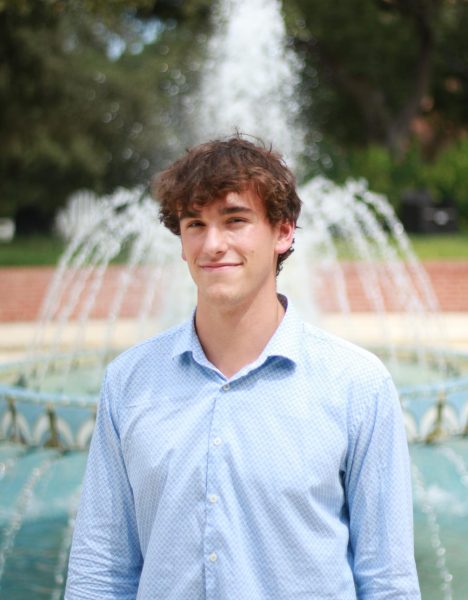Initially founded in 2012, Bee Club was created for students to beekeep and engage with the environment. However, it has changed significantly in the past few years, offering renewed opportunities for students of all backgrounds.
Kai Velasquez, junior sociology and urban studies double-major and president of the Bee Club, explained that Trinity originally had beehives on campus. She disclosed that the entire population of bees died due to the freeze and absence of care during COVID. However, Velasquez mentioned there may be an opportunity to have hives on campus once again.
“It’s been a question of whether we should or shouldn’t get the hives back on campus because people would have to know how to take care of them,” Velasquez said.
Regardless of the absence of beekeeping on campus, Velasquez commented that the club’s purpose has shifted under her leadership toward advocacy both for bees and the environment. She recalled that the club hosted a bee bath-making event last semester where members utilized recycled materials from a thrift shop to create, paint and decorate the final product.
Otherwise, she remarked that her favorite experience was the Pollinator Festival at Brackenridge Park, which she attended last semester.
“It was one of the most wholesome experiences of my entire life — it was really cool. They had a jazz band, they were giving out free pollinator trees and pollinator plants. They had a bunch of local environmental organizations talking to people. They had games for kids and stuff. It was really cool,” Velasquez said.
Velasquez reflected on her childhood when she learned that bees were creatures that she peacefully coexisted with, even if others were scared of them, which inspired her to join the Bee Club. Because of her “chill” relationship with bees, she called herself the “Bee Whisperer.”
“We have a lot to learn from bees — environmentally and as people,” Velasquez said. “Bees are really community-oriented and they cannot do anything without each other. From a collectivist point of view, we need to learn how to be comfortable with each other and work together to achieve our goals. But from an environmental perspective, it shows that learning to care about the smallest forms of life and your environment is something so powerful, it is something that people often overlook.”
Audrey Tollett, sophomore computer science major and vice president of the Bee Club, revealed that she joined the club for the people in it. She articulated that students should explore all club options, but she noted that the Bee Club is unique as it does not require commitment, monetary dues or regular attendance.
“I felt that they understood me and their sense of humor made sense to me. So I joined originally because I liked the people in the club, and I also like nature. I always liked being outside, connecting with nature and looking at the plants,” Tollett said. “You don’t have to come. If you’re stressed you don’t have to come, but you can — and know that there is a community of people that want to come hang out with you.”
She added that the Bee Club engages with nature, as it hosts meetings outside, and that there are positive mental health effects of being outside. Tollett acknowledged that being outside in the sun makes her happy and reinforces her sleep schedule. Moreover, she stressed the importance of maintaining community and friendship on campus, which, she explained, is possible through keeping clubs active.
“I think a lot of people are having troubles with their social life, and they are feeling socially inept after COVID. They are having a hard time meeting friends and making friends. I think keeping our clubs alive and thriving is the best way to help them with that,” Tollett said. “It gives you an excuse to hang out with people instead of having to confront this thing and plan this event with other people.”
Sam Carr, junior sociology major, explained that the Bee Club is a community to them and comes with a number of fun activities. Carr stated that members of the club attend with the intent of learning and sharing their knowledge regarding the environment and bees.
“I feel that learning about bees and the environment is incredibly important because we as humans often get stuck in this belief that the world is for us, and it’s not. It is for every aspect of the ecosystem, big or small,” Carr wrote in an email.
Carr noted that they enjoy learning about bees because their perspective changed to see bees as pollinators rather than an insect that stings. They emphasized their appreciation of organisms, regardless of how they support the ecosystem.
“I always recommend Bee Club whenever I can! If you are looking for a community on campus that fosters learning and emphasizes the importance of community, this is it!” Carr wrote.
They really mean no harm: The buzz about Bee Club
Bee Club talks the appeal of the bees, the environment and their own community
About the Contributor

Daniel Itkins, Pulse Reporter
My name is Daniel and I am a first-year aspiring Political Science & International Affairs double major. I never thought I would participate in journalism. Ultimately, my decision to join the Trinitonian was beneficial. The Trinitonian has changed the way I perceive activities, news, and students' thoughts here at Trinity University. Through my service, I understand the importance of sharing diverse perspectives on various topics. Now, all I have left is to see where journalism takes me...







